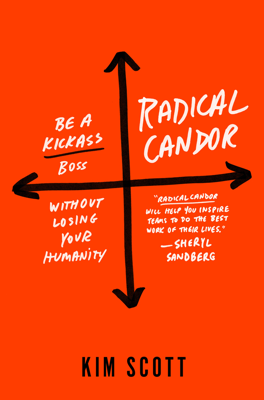Drive Results Collaboratively: Telling people what to do doesn’t work
The Crucial Role of Collaboration
- Success in achieving significant results usually transcends individual capabilities and relies heavily on collaborative efforts.
- Kim Scott highlights through various anecdotes at Google and other organizations that while direct challenges are important, caring personally about team colleagues is equivalently crucial for collaboration.
Dangers of Autocratic Decision-Making
- Making decisions without team involvement can demotivate and alienate the team.
- An example from Google's AdSense team management under Kim's leadership illustrates the negative impacts of unilateral decision-making and the positive shift towards collaborative structures.
Importance of Team Involvement in Decision-Making
- Effective decision-making at Google heavily involved collaboration rather than reliance on hierarchical authority.
- Even high authority figures like Google's cofounders engaged deeply with their teams, emphasizing the need for a cooperative approach in refining and executing ideas.
Applying the "Get Stuff Done" (GSD) Wheel
- The GSD process includes several steps: Listen, Clarify, Debate, Decide, Persuade, Execute, and Learn. Each step is critical, and skipping any can hamper productivity.
- Creating a culture whereby every team member is heard and contributing towards decisions enhances both the quality of ideas and the execution process.
Steps in the GSD Cycle:
- Listen: Create an environment where all team members feel they can voice their thoughts.
- Clarify: Refine ideas to ensure they are thoroughly understood.
- Debate: Encourage open discussions to explore and test ideas fully.
- Decide: Make informed decisions swiftly but carefully.
- Persuade: Ensure all team members understand and support decisions.
- Execute: Focus on efficiently implementing decisions.
- Learn: Continuously reflect on outcomes to improve future processes.
Key Factors in Making Collaborative Decisions
- Decisions should not be dictated by seniority but should come from those closest to the relevant issues, ensuring they are well-informed and contextually appropriate.
- Leaders at Google and Apple, including Steve Jobs, often consulted directly with junior team members involved in specific tasks, underscoring the value of grounded insights in decision-making processes.
Enhancing Execution through Collaboration
- Implementing decisions effectively requires minimizing the "collaboration tax," which involves embracing clear and purposeful communication, among other strategies.
- Leaders should actively manage their responsibilities to optimize team performance while tracking and learning from the results to inform future decisions.
By cultivating a workplace that balances care with challenges and strongly embraces collaboration, organizations can drive superior results and ensure sustained team engagement and loyalty.
